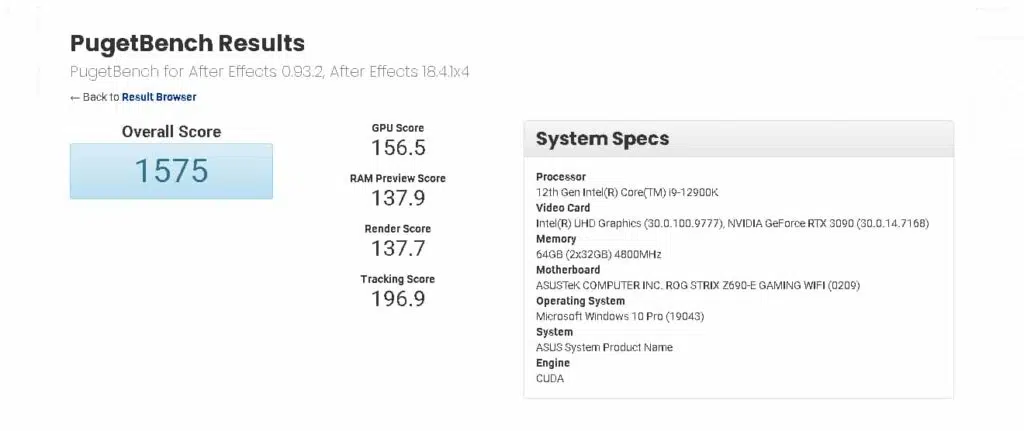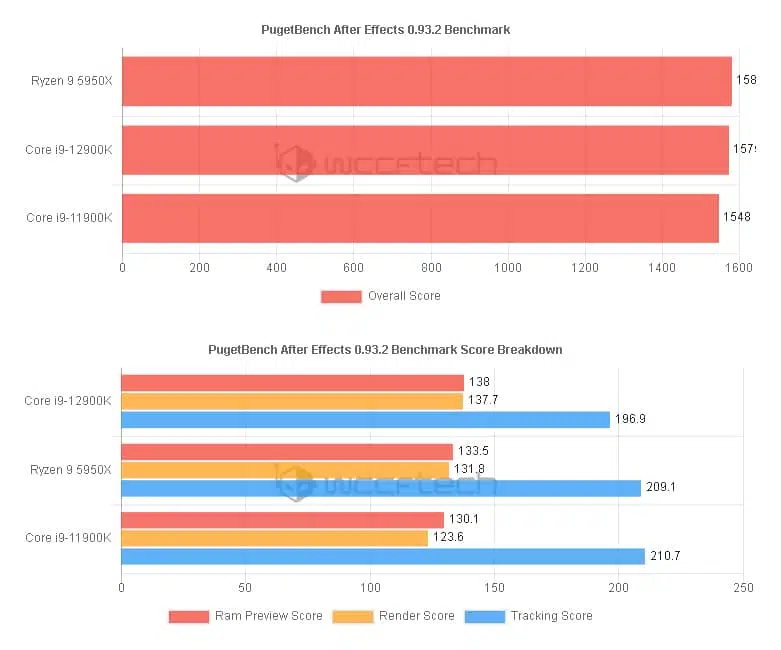
Intel’s next flagship processor is the Core i9-12900K, an “Alder Lake-S” CPU that leverages a novel design comprising small and big cores. New benchmark scores have appeared for a qualification sample of the highly anticipated chip that suggest the final product should compare favorably against today’s flagships.
As spotted on Puget Systems’ benchmark site before it was taken down, the Core i9-12900K managed an overall score of 1,575 on the PugetBench After Effects 0.93.2 test with an ASUS ROG Strix Z690-E motherboard and 64 GB of 4,800 MHz memory. This is just a little bit slower than what AMD’s flagship achieved; the Ryzen 9 5950X scored 1,581 in the same test. Intel’s Core i9-12900K also performed considerably better than its current “Rocket Lake-S” flagship, the Core i9-11900K, which only managed a score of 1,548.
A breakdown of the overall score goes on to hint that Intel’s Core i9-12900K will ultimately deliver greater performance than AMD’s 16-core counterpart. Intel’s Core i9-12900K achieved a RAM Preview Score and Render Score of 138 and 137.7, respectively, while AMD’s Ryzen 9 5950X achieved a RAM Preview Score and Render Score of 133.5 and 131.8, respectively. The Zen 3 option provided a higher tracking score, however (209.1 vs. 196.9).
As noted above, the Core i9-12900K that was used in this test is just a qualification sample. The final chip is almost certain to deliver better performance following proper BIOS and OS support.
The Intel Core i9-12900K will be the flagship chip in the 12th Gen Alder Lake Desktop CPU lineup. It will feature 8 Golden Cove cores and 8 Gracemont cores for a total of 16 cores (8+8) and 24 threads (16+8). The P-cores (Golden Cove) will operate at a maximum boost frequency of up to 5.3 GHz with 1-2 active cores and 5.0 GHz with all-cores active while the E-cores (Gracemont) will operate at 3.90 GHz across 1-4 cores and up to 3.7 GHz when all cores are loaded. The CPU will feature 30 MB of L3 cache and TDP values are maintained at 125W (PL1) and 228W (PL2).
Source: PugetBench (via Wccftech)


